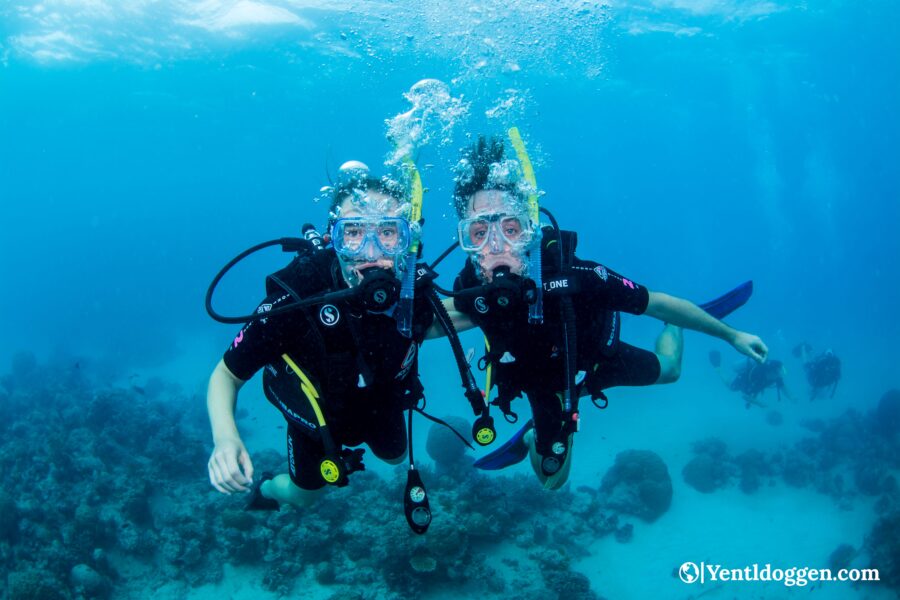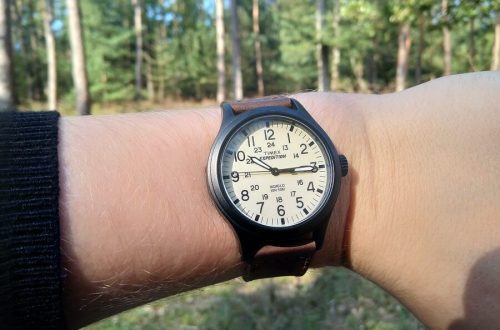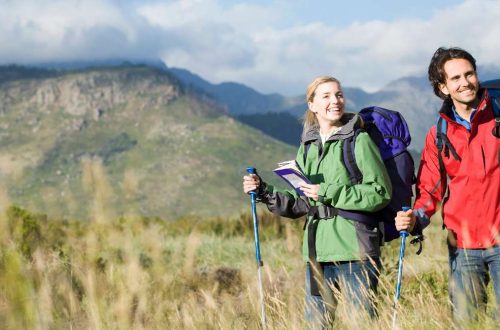Why Get Scuba Diving Certified?
Scuba diving opens up a whole new world of underwater exploration․ It’s an incredible experience to witness marine life up close․ But before you can safely explore the depths, you need to get certified․ This certification ensures you have the knowledge and skills necessary to dive safely and responsibly․ It’s not just about fun; it’s about safety and conservation․
Choosing a Scuba Diving Certification Agency
Several reputable scuba diving certification agencies exist․ The most popular include PADI (Professional Association of Diving Instructors), SSI (Scuba Schools International), and NAUI (National Association of Underwater Instructors)․ Each agency offers similar certification programs, but their teaching philosophies and materials may differ slightly․ Research each agency to find one that aligns with your learning style and goals․
Tip: Consider the location where you plan to dive most often․ Some agencies are more prevalent in certain regions, which could make finding local dive shops and resources easier․
The Steps to Certification: How to Get Your Scuba Diving Certification
The process typically involves three main components:
- Knowledge Development: This covers the theory of scuba diving, including physics, physiology, equipment, and dive planning․ You can complete this online or in a classroom setting․
- Confined Water Dives: These dives take place in a pool or shallow, controlled environment․ You’ll learn and practice essential scuba diving skills under the guidance of an instructor․
- Open Water Dives: These are your first dives in the ocean, lake, or quarry․ You’ll apply the skills you learned in confined water and experience the thrill of diving in a real-world environment․ Typically, you’ll need to complete four open water dives to earn your certification․
Each step is crucial for building your confidence and competence as a diver․ Don’t rush the process; take your time to master each skill․
What to Expect During Your Scuba Diving Course
Your course will be a mix of classroom learning, practical skills training, and open water dives․ Be prepared to spend time studying, practicing, and asking questions․ Your instructor will guide you through each step, providing feedback and support․ Remember to relax, have fun, and enjoy the learning process․ It’s an amazing journey!
Pro Tip: Invest in your own mask, snorkel, and fins․ Having your own well-fitting gear will significantly improve your comfort and enjoyment during your dives․
FAQ: Scuba Diving Certification
How long does it take to get certified?
The Open Water Diver course typically takes 3-4 days to complete․
How much does it cost?
The cost varies depending on the location, agency, and dive shop, but expect to pay between $300 and $600․
What are the prerequisites?
You must be at least 10 years old (for Junior Open Water Diver) and in good physical health․ You’ll also need to be comfortable in the water․
What equipment do I need?
Most dive shops provide all the necessary equipment for the course, but as mentioned above, consider purchasing your own mask, snorkel, and fins․
What happens after I get certified?
Congratulations! You can now dive independently with a buddy to a maximum depth of 18 meters (60 feet)․ You can also continue your diving education with advanced courses․
Scuba diving opens up a whole new world of underwater exploration․ It’s an incredible experience to witness marine life up close․ But before you can safely explore the depths, you need to get certified․ This certification ensures you have the knowledge and skills necessary to dive safely and responsibly․ It’s not just about fun; it’s about safety and conservation․
Several reputable scuba diving certification agencies exist․ The most popular include PADI (Professional Association of Diving Instructors), SSI (Scuba Schools International), and NAUI (National Association of Underwater Instructors)․ Each agency offers similar certification programs, but their teaching philosophies and materials may differ slightly․ Research each agency to find one that aligns with your learning style and goals․
Tip: Consider the location where you plan to dive most often․ Some agencies are more prevalent in certain regions, which could make finding local dive shops and resources easier․
The process typically involves three main components:
- Knowledge Development: This covers the theory of scuba diving, including physics, physiology, equipment, and dive planning․ You can complete this online or in a classroom setting․
- Confined Water Dives: These dives take place in a pool or shallow, controlled environment․ You’ll learn and practice essential scuba diving skills under the guidance of an instructor․
- Open Water Dives: These are your first dives in the ocean, lake, or quarry․ You’ll apply the skills you learned in confined water and experience the thrill of diving in a real-world environment․ Typically, you’ll need to complete four open water dives to earn your certification․
Each step is crucial for building your confidence and competence as a diver․ Don’t rush the process; take your time to master each skill․
Your course will be a mix of classroom learning, practical skills training, and open water dives․ Be prepared to spend time studying, practicing, and asking questions․ Your instructor will guide you through each step, providing feedback and support․ Remember to relax, have fun, and enjoy the learning process․ It’s an amazing journey!
Pro Tip: Invest in your own mask, snorkel, and fins․ Having your own well-fitting gear will significantly improve your comfort and enjoyment during your dives․
The Open Water Diver course typically takes 3-4 days to complete․
The cost varies depending on the location, agency, and dive shop, but expect to pay between $300 and $600․
You must be at least 10 years old (for Junior Open Water Diver) and in good physical health․ You’ll also need to be comfortable in the water․
Most dive shops provide all the necessary equipment for the course, but as mentioned above, consider purchasing your own mask, snorkel, and fins․
Congratulations! You can now dive independently with a buddy to a maximum depth of 18 meters (60 feet)․ You can also continue your diving education with advanced courses․
Maintaining Your Scuba Diving Certification and Skills
Certification is not a one-time event; it necessitates ongoing maintenance of skills and knowledge․ Regular diving is paramount to retaining proficiency․ If a period of inactivity exceeds six months, a refresher course, often termed a “Scuba Review,” is strongly recommended․ This review reinforces fundamental skills and updates divers on any changes in procedures or equipment․ Furthermore, consider pursuing continuing education courses, such as Advanced Open Water Diver or Rescue Diver, to expand your capabilities and enhance your safety awareness․
Understanding Dive Tables and Dive Computers
A critical aspect of responsible diving is understanding how to manage your nitrogen intake․ Dive tables and dive computers are the primary tools for this purpose․ Dive tables, while less common now due to the prevalence of dive computers, provide a manual method for calculating no-decompression limits and surface intervals․ Dive computers, on the other hand, continuously monitor depth, time, and ascent rate, providing real-time information and significantly reducing the risk of decompression sickness․ Familiarization with both methods is advisable, as dive computers can malfunction, and a backup plan is always prudent․
The Importance of Buddy Diving and Dive Planning
Diving is inherently a buddy activity․ Never dive alone․ A dive buddy provides assistance in case of emergencies, helps with equipment checks, and enhances the overall diving experience․ Effective dive planning is equally crucial․ Before each dive, discuss the dive site, planned depth, time limits, entry and exit points, and emergency procedures with your buddy․ A well-defined dive plan minimizes risks and ensures a safer and more enjoyable dive․
Environmental Responsibility and Dive Etiquette
As a certified diver, you have a responsibility to protect the marine environment․ Practice responsible diving habits, such as avoiding contact with coral, not disturbing marine life, and properly disposing of any trash․ Adhere to local regulations and guidelines regarding diving in protected areas․ Furthermore, be mindful of your buoyancy control to prevent accidental damage to the reef․ By practicing responsible dive etiquette, you contribute to the preservation of the underwater world for future generations․
Advanced Scuba Diving Certifications and Specialties
Once you have obtained your Open Water Diver certification, numerous advanced certifications and specialties are available to further your diving education․ These include:
- Advanced Open Water Diver: Expands your diving skills and introduces you to deeper dives and navigation techniques․
- Rescue Diver: Teaches you how to prevent and manage diving emergencies․
- Enriched Air (Nitrox) Diver: Allows you to dive with a higher percentage of oxygen, extending your bottom time․
- Deep Diver: Trains you to safely dive to deeper depths (typically up to 40 meters/130 feet)․
- Wreck Diver: Provides the skills and knowledge necessary to safely explore shipwrecks․
- Underwater Photography: Teaches you how to capture stunning images of the underwater world․
Pursuing these advanced certifications and specialties will enhance your diving skills, expand your diving opportunities, and increase your overall enjoyment of the sport․






